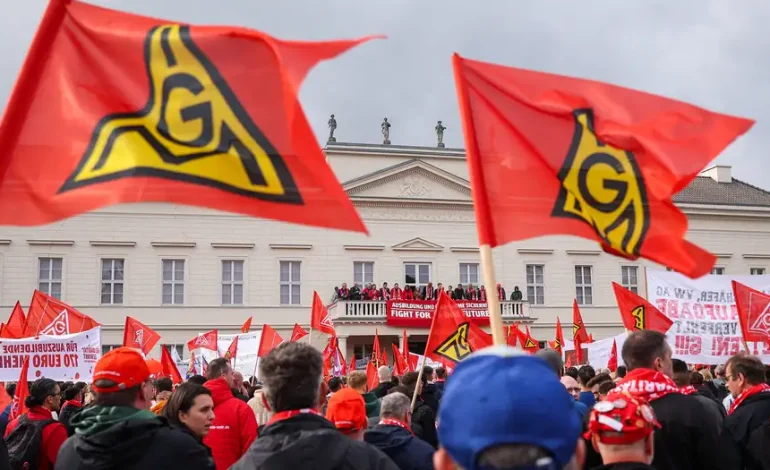Volkswagen and labor unions entered critical discussions on Wednesday, centered on cost-cutting measures, potential plant closures, and layoffs, as Europe’s largest carmaker grapples with a sharp drop in profits and intensifying competition.
The talks, involving VW’s management and Germany’s powerful IG Metall union, come amid escalating tension over job security and wages.
Volkswagen reported a 42% fall in third-quarter operating profit, down to €2.86 billion ($3.1 billion), and a slight dip in sales revenue, which dropped by 0.5% to €78.5 billion. These results reflect broader industry challenges, including rising costs and stiff competition, particularly as Germany’s manufacturing base faces added strain from a challenging shift toward electric vehicles. In September, VW announced it would end its employment protection agreement for German workers, a move that sparked discontent among unions and added pressure to the current negotiations.
Union representatives have voiced strong opposition to the prospect of plant closures and widespread layoffs, with IG Metall seeking a 7% wage increase. Employee council chief Daniela Cavallo has accused VW of shifting away from its traditionally collaborative approach with labor, calling the proposed layoffs a step toward a “sell-off” of the German automotive sector.
Volkswagen’s restructuring plans come in response to both internal and external pressures. CEO Oliver Blume cited fierce competition and Germany’s rising manufacturing costs as primary factors, and Chief Financial Officer Arno Antlitz echoed this, calling for greater efficiency to support future investments. According to VW negotiator Arne Meiswinkel, these talks are essential to finding “sustainable solutions” that can secure the company’s competitiveness.
This latest move follows Volkswagen’s recent cut in its annual forecast, now targeting a profit margin of 5.6% for 2024, down from previous estimates. Vehicle sales in the third quarter fell 8.3% year-on-year, adding to financial strain, while net liquidity remained negative, marking a €160.6 billion deficit at the end of September 2024.
The company’s stance has raised the potential for strikes if a compromise on plant closures cannot be reached. Union leaders have warned that workers are prepared to mobilize if management does not remove closures from its plans.
Deutsche Welle and CNBC contributed to this report.










The latest news in your social feeds
Subscribe to our social media platforms to stay tuned